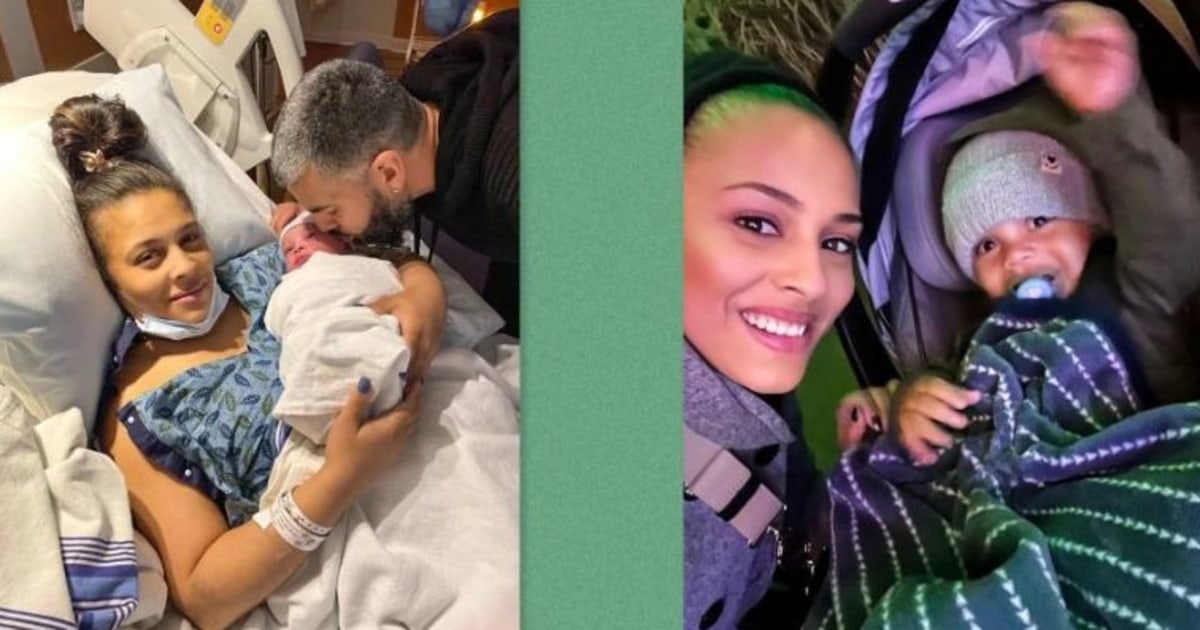By Erika Edwards - NBC News
The first study to directly address one of the biggest concerns of younger breast cancer survivors, the possibility of having a child, concluded that it is safe for these patients to interrupt, at least temporarily, treatment to become pregnant.
Until now, there was no substantial evidence that women who stopped taking hormone-reducing drugs in order to have a baby could do so without further increasing their risk of relapse.
These are the symptoms of the rare disease suffered by Céline Dion
Dec 9, 202201:31
The first study of its kind was presented Thursday at the San Antonio Breast Cancer Symposium, an annual gathering of breast cancer specialists.
"Some young women look at you and say, 'I'm not going to take it. I want my baby,'" explained Dr. Ann Partridge, vice chair of medical oncology at the Dana-Farber Cancer Institute and professor of medicine at the School of Medicine. from Harvard, who directed the research presented on Thursday, December 8, to a meeting of specialists in San Antonio, Texas.
[These are early symptoms of colon cancer, which killed Kirstie Alley]
According to the Centers for Disease Control and Prevention (CDC), less than 10% of breast cancers are diagnosed in women under the age of 45.
Up to 60% of these women fear that the drugs used to treat their cancer will affect their ability to have children, according to Partridge.
Endocrine therapy side effects
Women with hormone receptor-positive tumors - meaning their cancer is fueled by estrogen or progesterone - are often advised to pursue endocrine therapy for up to 10 years after diagnosis, to reduce any hormones that may contribute to the recurrence of the cancer. cancer.
Some examples of endocrine therapy are aromatase inhibitors and ovarian suppression drugs to reduce estrogen levels, as well as drugs such as tamoxifen to prevent estrogen from attaching to cancer cells.
People lose weight faster with financial incentives, study finds
Dec 9, 202201:45
However, the side effect of these drugs is that they can destroy any chance of getting pregnant or having a healthy baby.
Faced with this possibility, many women stop or never start endocrine therapy, against the advice of their doctors, the doctor stressed.
"For women who are likely to be cured and don't want their future fertility taken away, how can we help them both receive optimal breast cancer care and risk reduction while also completing their families?" ?” Partridge asked.
The study included the participation of 518 women aged 42 years or less.
All had received endocrine therapy for at least a year and a half before stopping it to try to get pregnant.
The researchers encouraged them not to wait more than two years to resume therapy.
63% of them managed to get pregnant and have a child.
[Salud de Alquiler: An Investigation of Latinos Making a Living in Clinical Trials]
Three years after stopping the hormone-suppressing drugs, the relapse rate was 8.9%, similar to what would be expected in patients staying on the medication, according to Partridge.
The results of the study had generated great expectations among breast cancer specialists.
“This is definitely a breakthrough,” said Dr. Kai Johnson, a breast oncologist at The Ohio State University Comprehensive Cancer Center.
“I think it changes practice, because we can confidently tell women” that interrupting endocrine treatment for a while to have a child does not affect the risk of relapse.
These are the harmful effects you may experience from using devices at high volume
Nov 17, 202202:07
Dr. Jennifer Litton, a specialist at the MD Anderson Cancer Center in Houston, Texas, agreed with this interpretation.
Many of her patients were already making the decision to stop therapy at the possibility of having a baby.
“A lot of women in the United States are making this decision right now,” she said.
"These data can be cautiously reassuring."
Neither Johnson nor Litton were involved in the new investigation.
"The idea of not being a mother was worse than having cancer"
Shayla Johnson, 40, was one of the women who participated in the study.
[He feels sad? The shorter days of winter are to blame. This is how you can combat seasonal depression]
She was diagnosed with stage 2 breast cancer at age 34.
His doctor told him that if it spread, he would probably do it quickly.
He opted for a double mastectomy and followed eight cycles of chemotherapy.
But the prospect of the treatment destroying her chances of having a child was devastating.
"Without a doubt, the idea of not being a mother was worse for me than having cancer," she revealed.
"I remember that I questioned my status as a woman more than when I lost my breasts," she acknowledged.
Shayla Johnson, 40, chose to stop long-term breast cancer treatment so she could have her son Ronin. Courtesy of Shayla Johnson via NBC News
She stopped endocrine therapy and got pregnant with Ronin, who turned 11 months this week.
More than three-quarters of the study participants have returned to taking their hormone-suppressing drugs.
Over the next 10 years, they will follow a control to check the long-term effects of the interruption of the therapies or of the pregnancy itself, which floods the body with hormones.
"The concern has been that the hormones themselves would increase the risk of the cancer coming back, that we would somehow wake up cells that were hidden," Partridge said.
“Obviously we have to follow up to make sure it's safe over time.
But, so far, we have not observed an increased risk,” she maintained.

